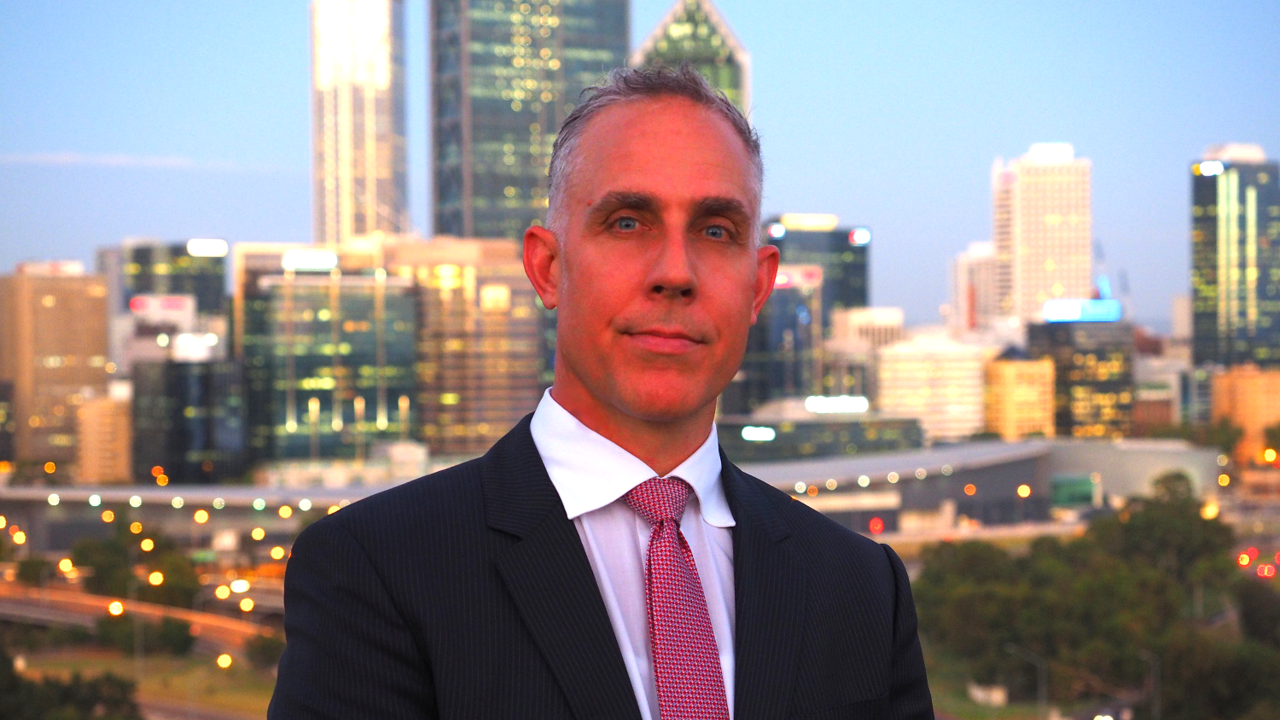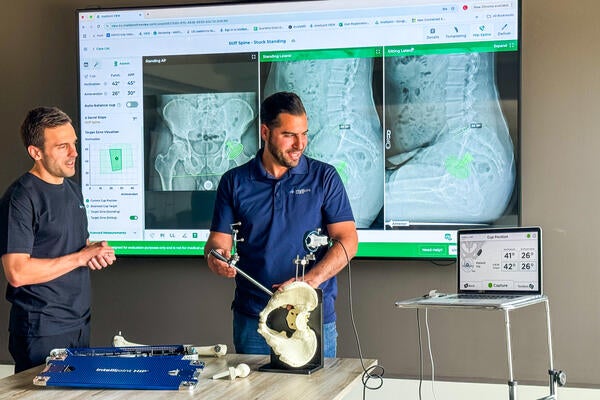
Fuzo brings financial inclusion to millions through Blockchain
Leon Gerard Vandenberg (BASc 1988) is using innovation to improve the lives of people who need it most: the unbanked and underbanked

Leon Gerard Vandenberg (BASc 1988) is using innovation to improve the lives of people who need it most: the unbanked and underbanked
It’s a typical day. You pay for your morning coffee with a tap of your debit card, e-transfer money to your son at university, settle all your household bills and even negotiate a new mortgage online. Sure, you’ve been known to gripe about banking service fees, but who hasn’t? And so it goes for much of the developed world - daily life involves interactions with some global financial system - and it’s something we take for granted.
A sizable portion of our global population - at least two billion poor adults including 17 million Americans according to the World Bank - are left out of the financial services system. Known as the “unbanked and underbanked” this population is a demographic that also frequently relies on transferring and receiving money (remittances) to family across borders. Last year, more than $430 billion in remittances were sent to developing countries, with transaction fees ranging from eight to 20 per cent, (approx. $32 billion), which were at the mercy of slow transfer times, inconvenient hours and an unacceptably high two per cent transaction failure rate. Being underbanked has expensive consequences that are borne by the world’s most vulnerable people.
This could change thanks to the work of Leon Gerard Vandenberg (BASc 1988, Systems Design Engineering), who is using cutting-edge technology to give financial inclusion to these billions of people. In the best spirit and tradition of engineering, he is using innovation to improve the lives of people who need it most.
Vandenberg, a successful serial entrepreneur and expert in wireless systems, is betting on the growing use and acceptance of cryptocurrencies (Bitcoin, Blockchain, etc.) that eliminate the need for financial institutions or expensive intermediaries to allow for near real-time, secure transfer of digital currency and blockchain assets to level the financial playing field for all. His company, Fuzo.com, has developed the bitSIM overlay SIM technology that allows anyone with a mobile phone (even ancient pre-WAP and pre-BlackBerry phones) to safely send and receive cryptocurrencies and money. His subscriber identity module (SIM) and embedded cryptochip bypasses the need for nationally constrained financial systems and the typical punitive service fees. It gives the “unbanked” a crucial path out of poverty.
It’s a technology that Vandenberg understands better than almost anyone else in the world. In 1999-2000, he helped launch the US Treasury’s NavyCash Smartcard, which is a centralized USD eMoney system that eventually replaced fiat money on every navy and marine ship and base worldwide. When Bitcoin was invented in 2008, it used the best-of-breed Elliptic Curve Cryptography (ECC), co-invented by Neal Koblitz of the Centre for Applied Cryptographic Research and perfected by the late Scott Vanstone, a University of Waterloo distinguished professor emeritus of mathematics. Vandenberg recognized there was an enormous opportunity for disruption in the global financial system, helping not only the rich, but giving the poor, especially women, the financial access they need.
“I knew there must be a way to put the ECC bitcoin blockchain cryptosystem on a SIM - any SIM - and this would bring digital bitcoin and dollars to anyone with a simple mobile phone. Our vision became streamlining financial technology adoption and financial inclusion for the unbanked and underserved,” says Vandenberg from Fuzo’s Hong Kong headquarters. He seed funded with Bitcoin and then built the product.
The market for his product is huge. Vandenberg talks of Africa, Indonesia and India’s enormous need for improved banking services for the millions of under and unbanked. While global banks working hard to service these growing markets, “they really understand traditional bank tech, not mobile money,” he says. He likens the present system to a “local dial tone” which frustrates would-be customers.
“Fuzo customers don’t need to understand blockchain or crypto - they just put the SIM in their phone, almost any phone, and a Fuzo menu on their phone will connect them to a global financial dial tone,” says Vandenberg.
Certainly, this disruptive tech has caught the attention of the major financial systems, but Vandenberg says banks, “really understand traditional bank tech, not mobile money,” and with this new “permissionless” innovation of Bitcoin, Ethereum and many emerging blockchains, he has the advantage. He is growing his company, and is seeking out Waterloo Engineering co-op students and alumni to help his team, including the R&D Labs at Flinders University co-located at Tonsley.com campus in Australia.
Vandenberg credits Waterloo’s systems design engineering department and co-op program for “showing me the way as an entrepreneur.” Now he’s showing the world how technology and teamwork is changing it for the better.

Read more
Two University of Waterloo affiliated health-tech companies secure major provincial investment to bring lifesaving innovations to market

Read more
How Doug Kavanagh’s software engineering degree laid the foundation for a thriving career in patient care

Read more
Upside Robotics secures new funding to accelerate the future of sustainable farming
The University of Waterloo acknowledges that much of our work takes place on the traditional territory of the Neutral, Anishinaabeg, and Haudenosaunee peoples. Our main campus is situated on the Haldimand Tract, the land granted to the Six Nations that includes six miles on each side of the Grand River. Our active work toward reconciliation takes place across our campuses through research, learning, teaching, and community building, and is co-ordinated within the Office of Indigenous Relations.